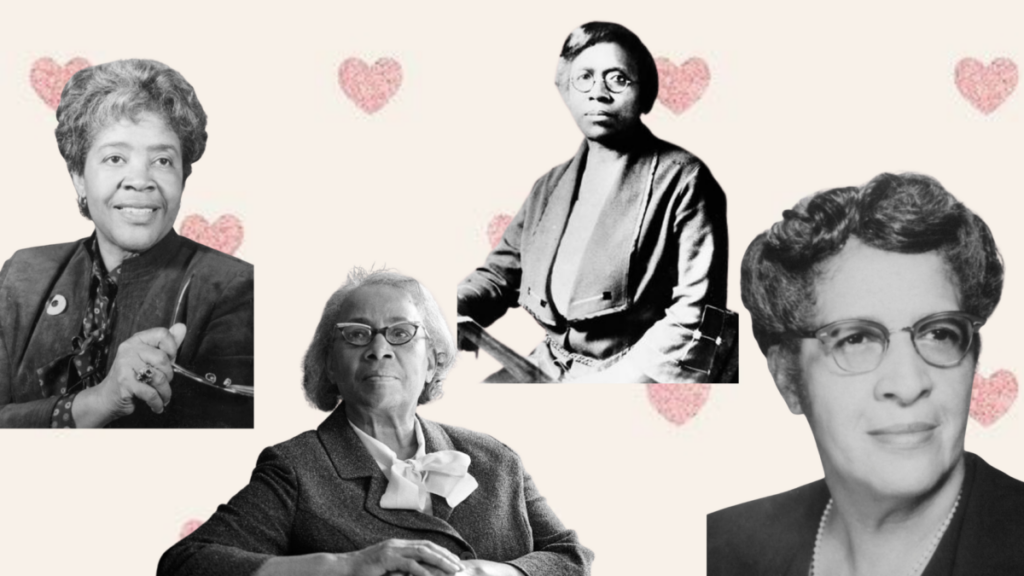Last year, in honor of Black History Month, we decided to share 10 Black Fashion Icons that not only impacted my sense of style, but also the style of our nation. However, this year we decided to bring it back home and recognize some local women who each made a significant impact not only on Black history as a whole but also in their local Charleston and Columbia communities.
Check out these four women below!
Modjeska Simkins
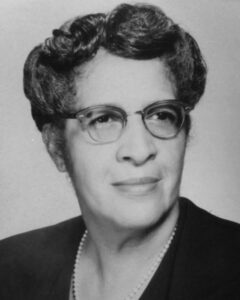
“I cannot be bought, and I will not be sold.”
Modjeska Simkins was born in Columbia, SC on December 5, 1899. She grew up on a farm outside of the city and after graduating from Benedict College in 1921, she began teaching at Booker T. Washington High School. After marrying Andrew Whitfield Simkins, she, unfortunately, had to resign from her teaching position as public schools in Columbia did not allow married women to teach. She did not let this stop her though! Simkins went on to be the Director of Negro Work for the South Carolina Tuberculosis Association (SCTA) in the 1920s and 1930s and was a huge civil rights activist with the Southern Conference Education Fund, a south-wide interracial civil rights organization. In her work with the NCAAP, Simkins fought for key cases including the fight for equal pay for black teachers (Duval v. Seigneus and Thompson v. Gibbes et al.), the fight to end the all-white Democratic primary in South Carolina (Elmore v. Rice), and the fight to end segregation in public schools (Briggs v. Elliott).
Septima Clark
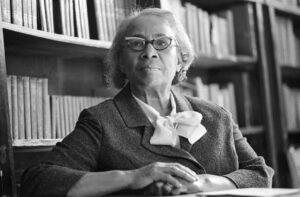
“I believe unconditionally in the ability of people to respond when they are told the truth. We need to be taught to study rather than believe, to inquire rather than to affirm.“
Septima Clark was born on May 3, 1898, in Charleston, SC. She was the daughter of a laundrywoman and a former slave. Clark studied under W. E. B. Du Bois at Atlanta University before eventually earning her BA (1942) from Benedict College in Columbia, and her MA (1946) from Virginia’s Hampton Institute. She was a teacher for over 30 years, worked with the YWCA, and conducted workshops at the Highlander Folk School in Monteagle, Tennessee, a grassroots education center dedicated to social justice. Rosa Parks even participated in one of Clark’s workshops just months before she helped launch the Montgomery bus boycott! Some of her notable accomplishments include participating in n a class action lawsuit filed by the (NAACP) that led to pay equity for black and white teachers in South Carolina and designing educational programs to teach African American community members how to read and write.
Dr. Matilda Evans
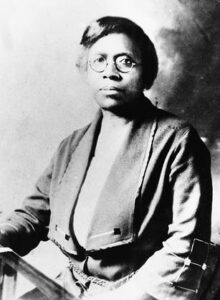
“I have done well, and have a very large practice among all classes of people. I have had unlimited success.”
Dr. Matilda Evans was born May 13, 1872, in Aiken, SC where she grew up during the Post-Reconstruction era. Thanks to the help of her school teacher, Martha Schofield, Evans was able to raise funds to attend Oberlin College and then enroll at Women’s Medical College. Fun fact: Evans wrote the memoir of her school teacher, Martha Schofield! Her studies at Women’s Medical College led her to become the first African-American woman to be licensed as a physician in South Carolina. She went on to open the Columbia Clinic Association, which was the city’s first free clinic for African American children. In 1914, Evans established St. Luke’s Hospital, Evans Sanitorium, and the Negro Health Association of South Carolina, further contributing to the medical field and giving adequate access to medical care for the Columbia community.
Charlotta Bass
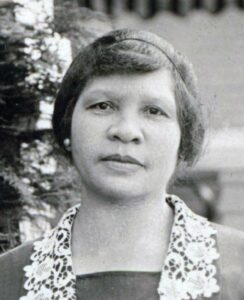
“In public, in private, wherever I have heard the challenge, the call for a greater effort, the need for further struggle….I have continued to this day to work and fight and struggle toward the light of a better day.”
Charlotta Bass was born February 14, 1874, in Sumter, SC to a family of 11 siblings. She moved to Rhode Island to live with an older brother and attend Pembroke College, now part of Brown University. In 1910, due to her asthma, she moved to L.A. for the warmer climate. After moving to L.A., Bass became the editor of The Eagle, the oldest African American newspaper on the West Coast, and changed its name to The California Eagle. Her work with her newspaper allowed led to her touring the country to speak out against racial injustice, which in turn boosted readership for the newspaper. The California Eagle fought many battles for the African American community such as calling out the racism of the film Birth of a Nation. Bass helped open employment opportunities for African Americans with major employers such as the Los Angeles General Hospital and the Los Angeles Railway. Bass also put her life in jeopardy on multiple occasions including when she detailed the Ku Klux Klan crimes in print and published a letter by the head of California’s Klan that exposed their plot to frame local Black leaders. Bass’s activism led her to be branded as a communist by the FBI which placed her under surveillance because they believed her paper was seditious.

